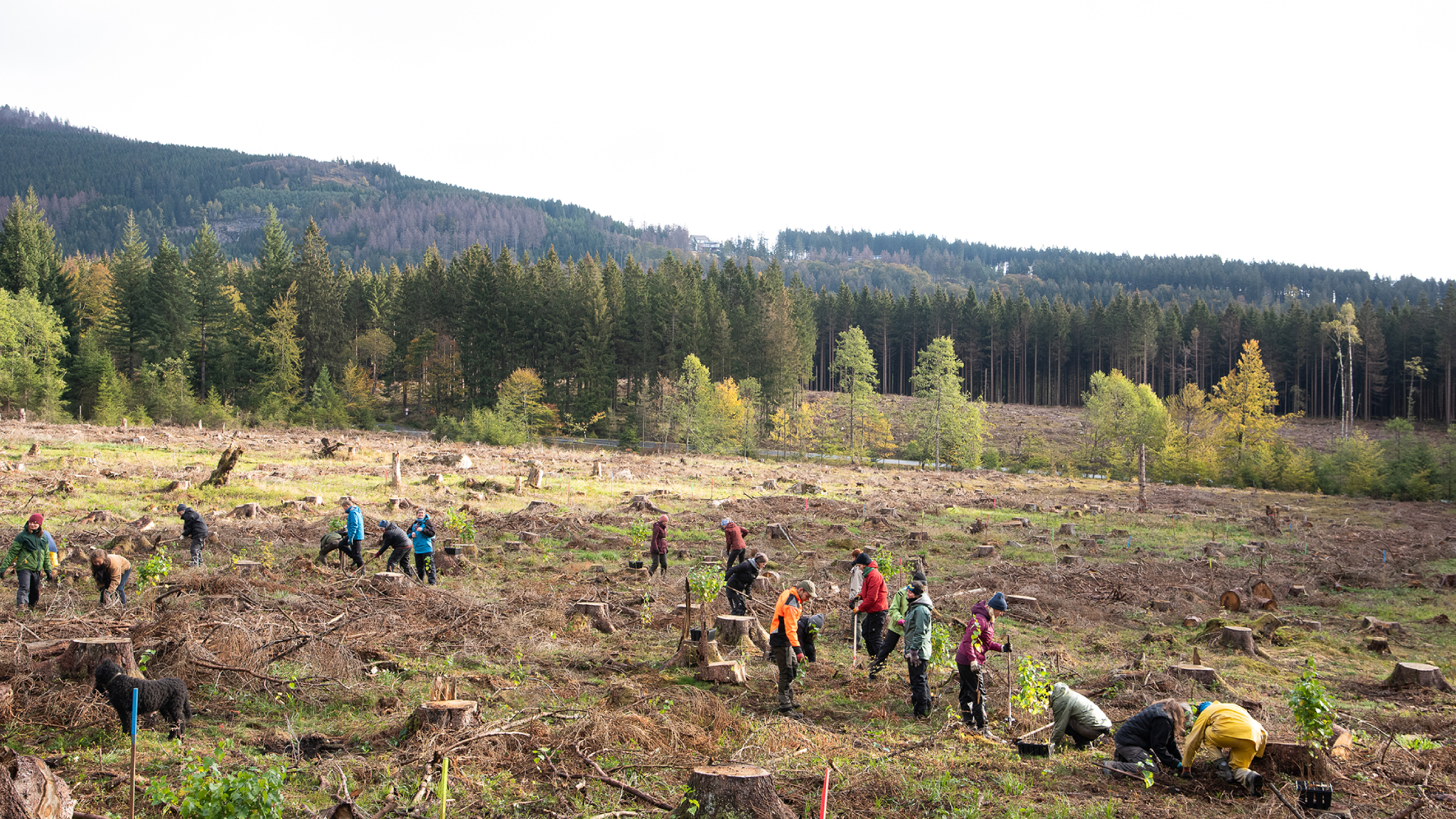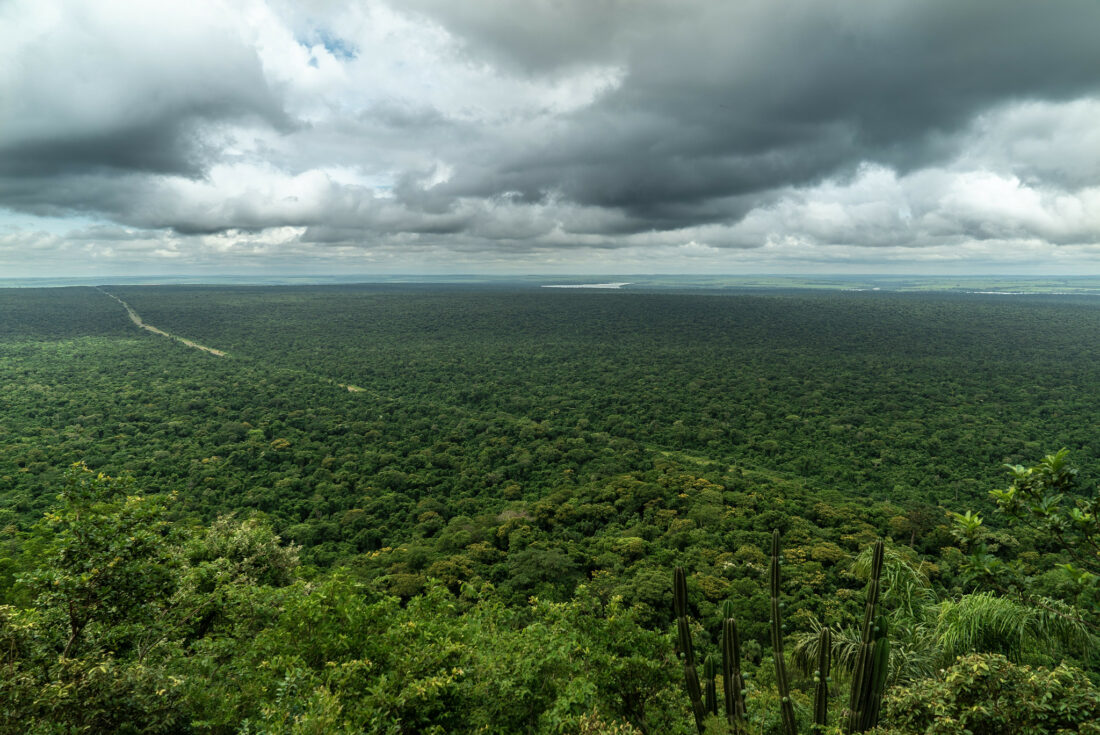Traditional Agroforestry in Alentejo, Portugal
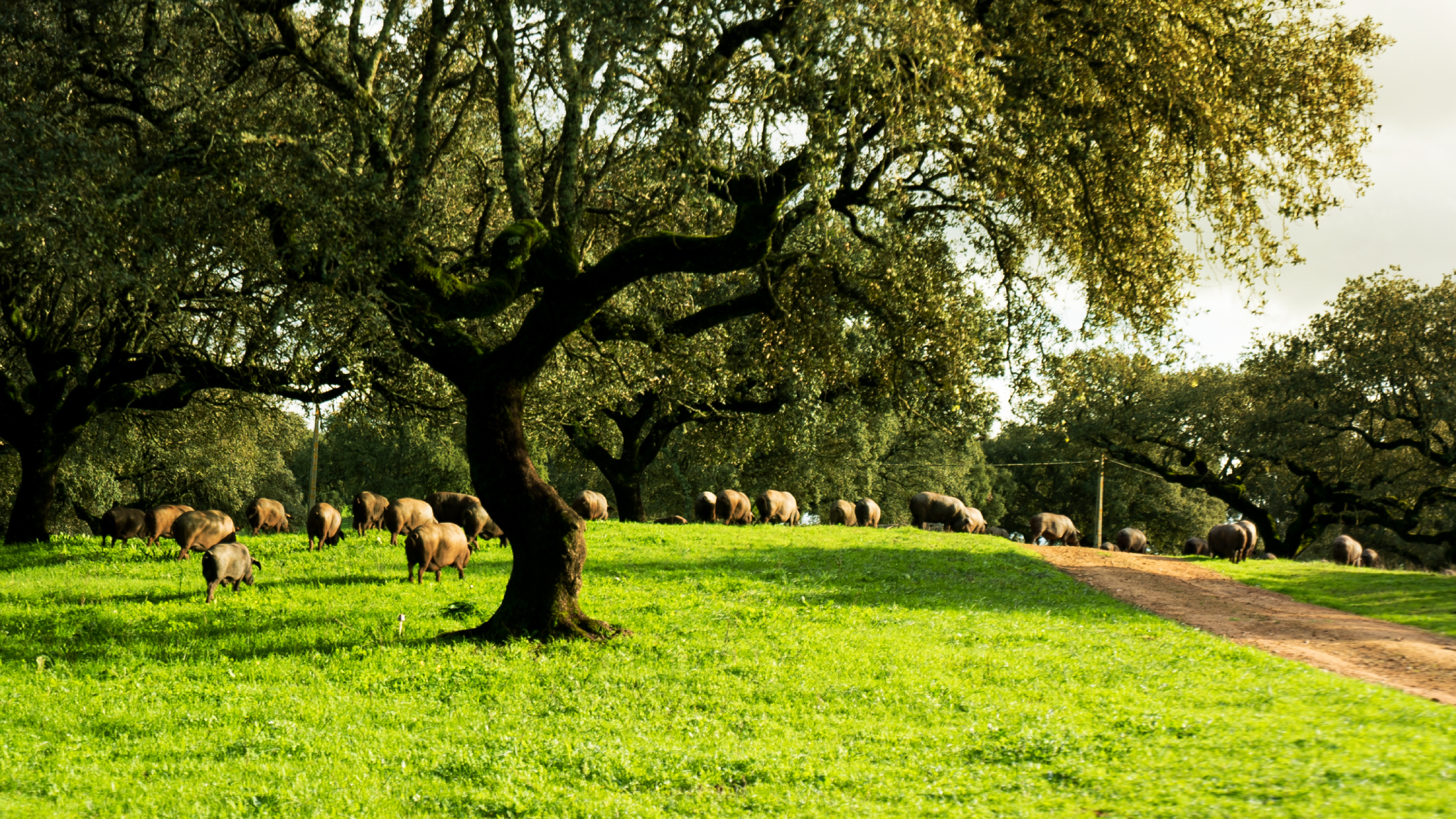

| Continent | Europe |
| Country | Portugal |
| Cost per 1 ton of bound CO2 | 71,43 € |
| GPS Data of planting site | 38.346394, -8.123971 |
| Planting Partner | Climate Farmers |
Porcus Natura is a 700 ha regenerative farm close to Montemor-o-Novo in the Alentejo region of Portugal. The proud and dedicated owner, Francisco Alves, is the fifth generation of this unique montado farm. Montado refers to the traditional agroforestry system in Portugal, characterised by low-density cork trees combined with pastoral activities or agriculture.
Through rotational grazing, which implies the daily rotation of the spaces covered by animals, they ensure the quality of the pasture and the regeneration of the soil. Another, of many, positive side effects of regenerative soil management is absorption of significant amounts of carbon by the soil. This balances the emissions caused by the animals. To enhance the climate benefits, the owner wants to plant several thousands of trees to expand the agroforestry project, which at the same time provides shade and food for the grazing animals.
Transitioning villages to agroforestry in Tanzania
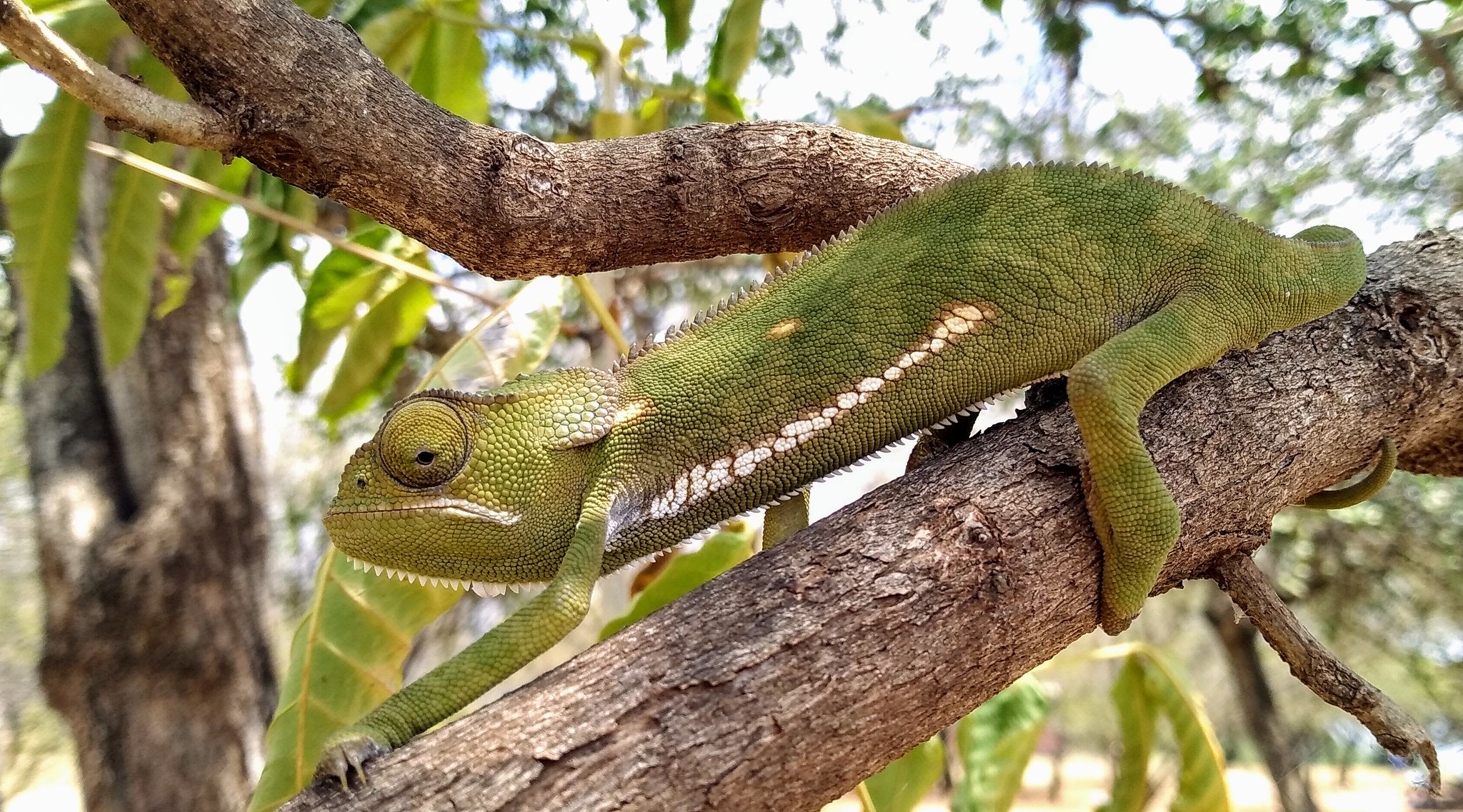
©MDB_WeForest.jpg

| Continent | Africa |
| Country | Tanzania |
| Costs per tree | 0.79 € |
| GPS Data of planting site | -1.528540, 33.941458 |
| Reforestation Partner | WeForest |
In Mara, the extraction of resources from forests has caused local smallholder farmers to struggle with infertile soil, low water tables and erratic rainfall. Seedlings are grown in nurseries and distributed to the people that need it most. Through agroforestry systems on their farms and schools, the farmers and institutional beneficiaries are able to grow their own fodder, fuelwood, fiber, fruit and timber, and so no longer need to depend on forests for consumption or income generation.
Tietê Forests
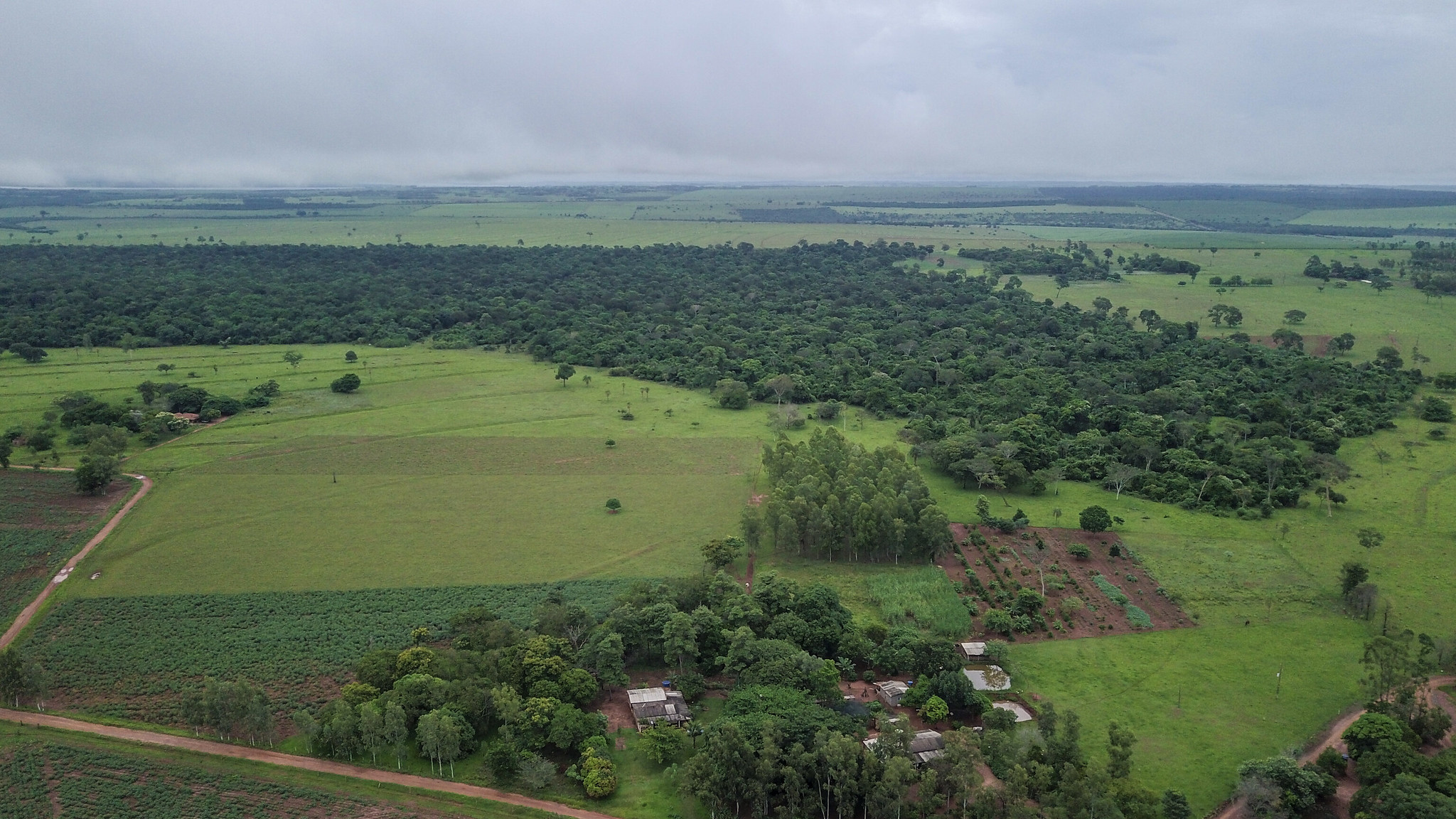

| Continent | South America |
| Country | Brazil |
| Costs per square meter | 1 € |
| GPS Data of planting site | -21.652988, -49.121826 |
| Reforestation Partner | WeForest |
Serving the state of São Paulo, the Tietê river in the Atlantic Biome is a powerhouse, yet it’s one of the most polluted rivers in Brazil. WeForest and AES Brasil are collaborating to restore the forest on the edges of the Tietê river and its tributaries with native species, protecting water bodies from soil siltation and runoff from herbicides and pesticides. The project is also providing a testing ground for pioneering restoration approaches that aim to reduce the use of herbicides – which are usually relied on in Brazil to control invasive grasses – or even eliminate them entirely.
Ethiopia Desa’a
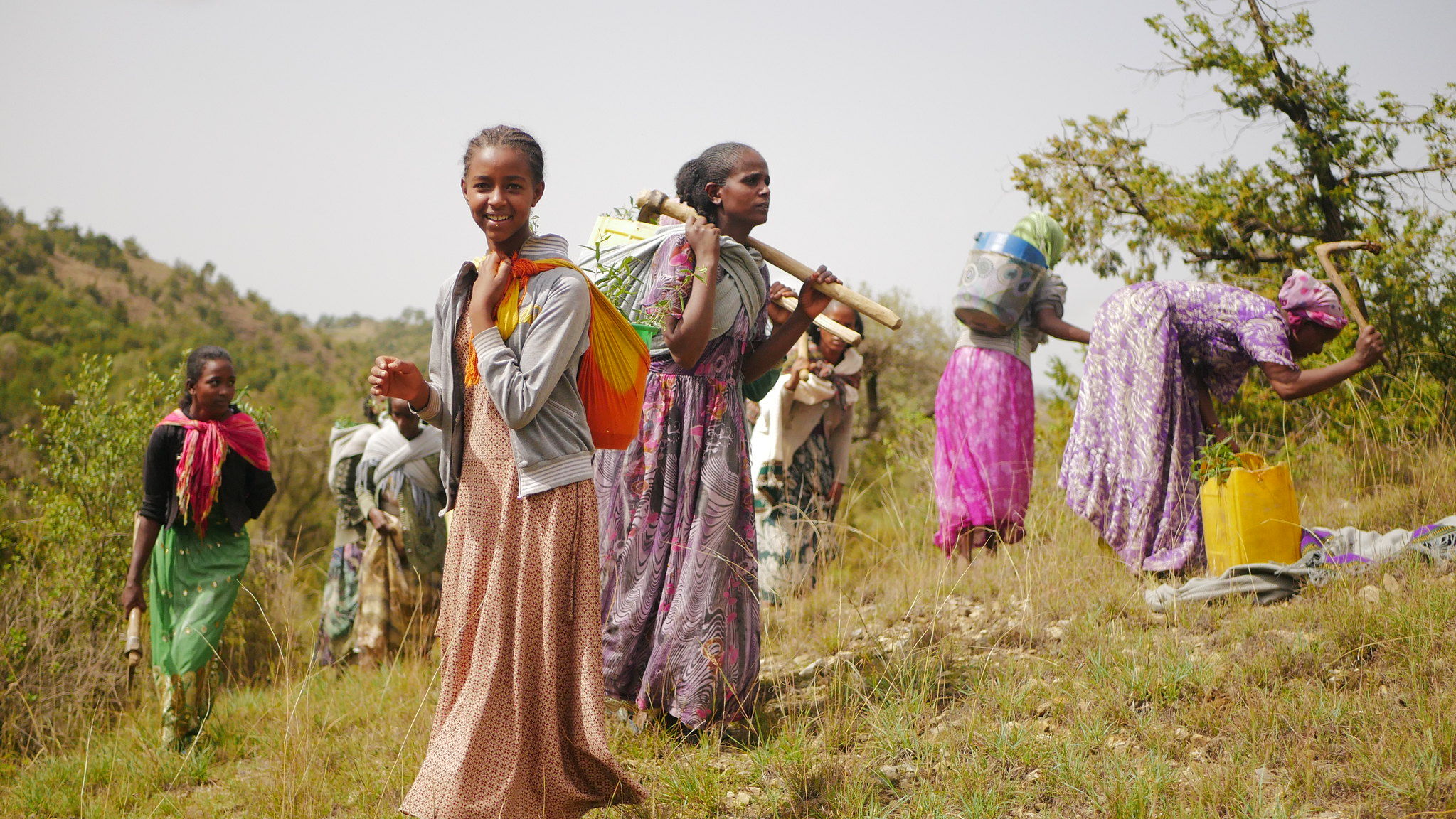
©DVCorstanje_WeForest

| Continent | Africa |
| Country | Ethiopia |
| Costs per square meter | 0.17 € |
| GPS Data of planting site | 13.947349, 39.813018 |
| Reforestation Partner | WeForest |
The Desa’a Forest is one of the oldest remaining dry afromontane forests in Ethiopia. Over 26,000 people live below the poverty line here, relying on the forest for water, energy and to feed their cattle. This ambitious, award-winning project aims to restore and protect arid afromontane and bring water back to this region, which is directly threatened by desertification coming from the north, and lift the rural communities out of extreme poverty.
Planting Oak Trees in the Wildlife Reserve Hutewald
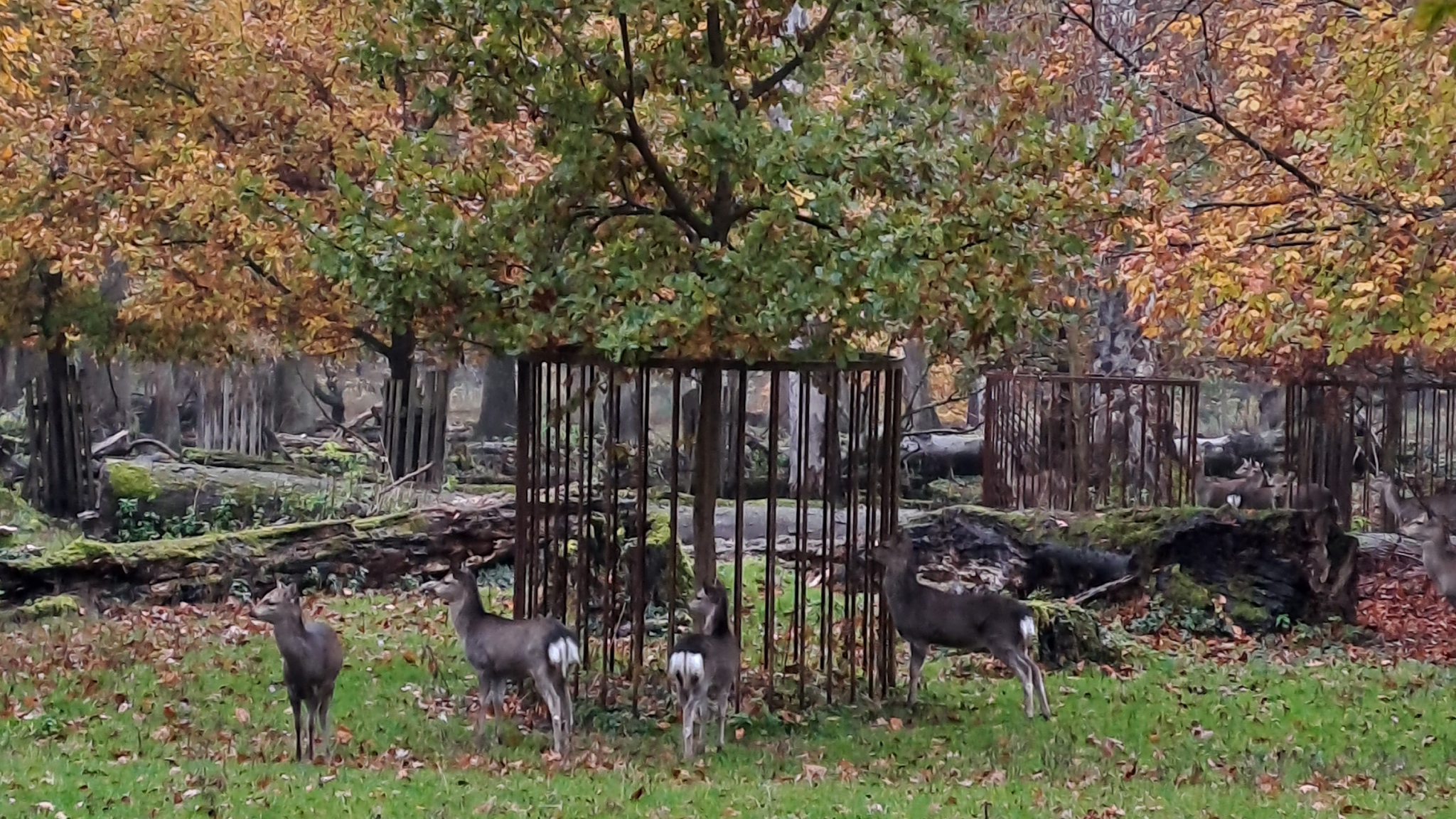

| Continent | Europe |
| Country | Germany |
| Costs per Tree | 425 € |
| GPS Data of planting site | 52.188487, 9.604949 |
| Planting Partner | Niedersächsische Landesforsten |
The extreme weather events, that is floods, of recent years have killed a large number of old oak trees that are part of the wildlife reserve ‘Hutewald’ and the bison enclosure ‘Wisentgehege Springe’ south of Hannover. To maintain the mountain forest character Niedersächsiche Landesforsten plant 50 new oak trees per hectare. The young trees (approx. 1.2-2.0 m tall) must be protected against the herbivores native to the area by means of individual shelters. The individual protection remains on the tree for about 30 years until the bark can no longer be damaged by animals. The special purpose of this project is to preserve and expand the approx. 300-year-old Hutewald, which provides acorns for the animals and houses the largest population of hermit beetles (Osmoderma eremita) in Lower Saxony.
Further information about the project and partner.
Planting Trees Cultivating Peace
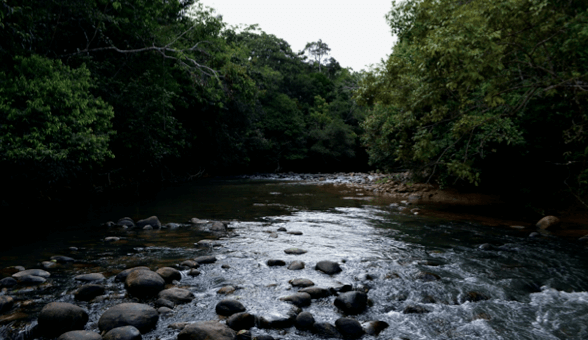

| Continent | South America |
| Country | Colombia |
| Costs per Tree | 7.15 € |
| GPS Data of planting site | 2.9691, -73.9006 |
| Planting Partner | World Wide Fund For Nature Deutschland |
